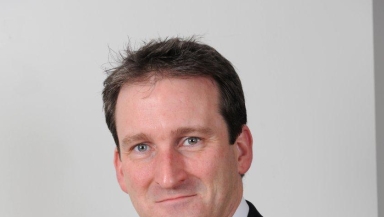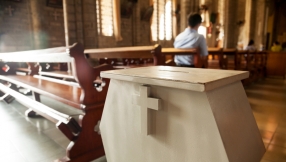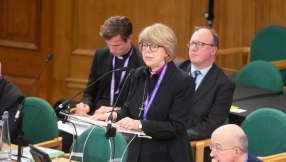The divisive issue has caused 'blue on blue' Tory infighting, and now the former archbishop of Canterbury Rowan Williams has lined up with his sometime opponent and prominent atheist Richard Dawkins to go against the Catholic Church and the new Conservative education secretary on the subject.
Williams has led a group of 70 public figures, politicians and academics who today argue in a letter that a 50 per cent cap for faith schools on admissions on the basis of religion, introduced in 2010, must not be lifted.
So why is the issue so sensitive?
It is one of those few areas which cut across both politics and religious affairs, where normally you see conservative faith leaders pitted against the increasingly secular Westminster world. But Dr Williams and his colourful collection of allies have changed that. They reject Catholic and Muslim pleas for more freedom, warning instead against exclusive religious communities of pupils and teachers.
The controversy began in earnest when, last year, the prime minister Theresa May pledged to lift the cap, reportedly on the advice of her former Number Ten aide and ideologist-in-chief, Nick Timothy.
But the pledge to scrap the cap was abandoned by the centrist former education secretary Justine Greening after the schools watchdog Ofsted warned it would lead to 'increased segregation'.
And this goes to the heart of the issue. For some, faith schools themselves – even the mild, Church of England kind – are infuriating, not least because plenty of middle class atheist parents who have no intention of bringing up their children as Christians attend churches and seek to gain favour with local vicars in order to place their offspring into more academically impressive church schools.
But for others, including the signatories of this latest letter to today's Telegraph, the issue is more fundamental: the prospect of scrapping the 50 per cent cap would be 'deleterious to social cohesion and respect' and 'allows schools to label children at the start of their lives with certain beliefs and then divide them up on that basis'.
Allowing more Catholic-only schools would also mean more Muslim-only and Jewish-only schools. The 50 per cent cap was introduced to stop the 'ghettoisation' of schools, and the indoctrination of young people into what some say are closed communities.

The Catholic Church is the main force that is strongly opposed to the cap and has said that it would not establish any new schools as long as it was in place, arguing it has a duty to educate Catholics, while the Church of England has rather sidestepped the issue, saying that it does not affect its work.
But in politics, it polarises opinion, including within parties, with Catholic MPs tending to support the lifting of the cap.
In January, it emerged that the new Education Secretary Damian Hinds is set to scrap the cap and is planning a big increase in faith schools, according to the Mail on Sunday.
Hinds, who attended a Catholic grammar school, would face a clash with schools chiefs over the plans, but also with other, more liberal-minded Tories.
The minister gave a broad hint to the newspaper that he will axe the cap. An Education Department spokesperson said: 'We want to go further to ensure all young people have a good school place and are keen for faith groups to play a key role. Faith schools are more likely to be rated outstanding by Ofsted than non-faith schools.'
Now, Hinds looks set to perform another Tory U-turn on the sensitive issue. And that means a whole heap of opposition from a spectrum of opinion so diverse that it unites Rowan Williams and Richard Dawkins.













